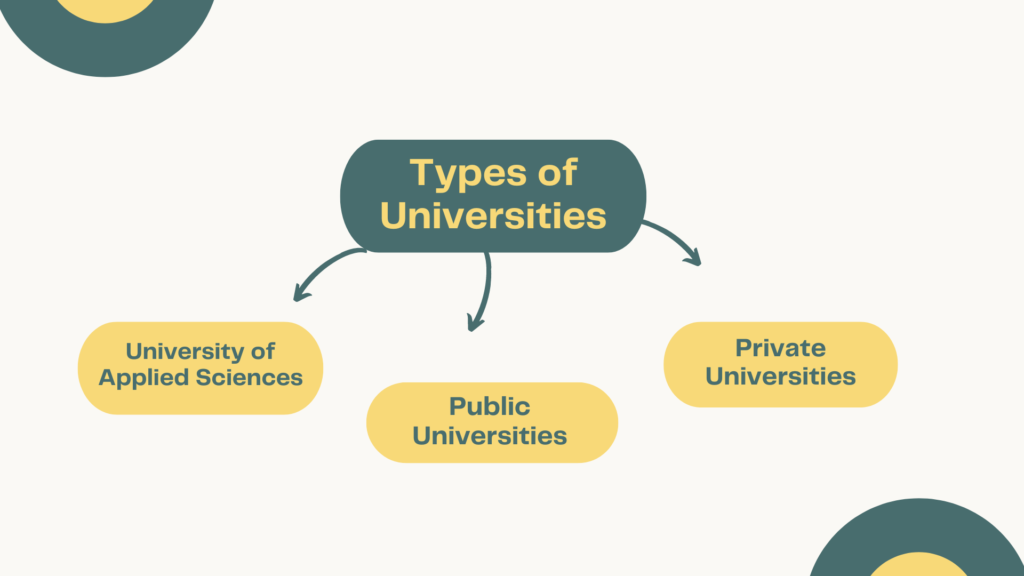How to Access Austria Free Education – A Step-by-Step Guide
Are you a student and looking for a reasonably priced, top-notch education, then you should travel to Austria first. It gives a competitive advantage over many nations with its Austria free education or low-cost tuition for both EU/EEA and overseas students. Especially when compared to other wealthy nations, Austria has a quite easily available educational system.
Public university education for EU/EEA students is basically free, with just nominal administrative costs. Given some of the most reasonable tuition rates in Europe, non-EU/EEA students are not left behind either. Along with Austria’s emphasis on cultural variety and high-quality education, this system has helped to make this country a popular choice for study in Austria.
Offering a variety of courses in several disciplines, the nation has some of the most respected and oldest universities. Austria offers top-notch education without the expensive cost connected with many other countries whether your degree is a bachelor’s, master’s, or doctorate.
If you are searching for austria free education opportunities then here are very beneficila information for you. Following are some major points that will be discussed in this article to make the students able to easily apply for their study in Austria for free.
- Austrian free education eligibility
- Types of universities in Austria
- Free education for EU/EEA students
- Austria scholarships and financial aid
- Methodical guide for requesting free Austrian education
- Well-known Austrian free universities
- Why choose Austria for higher education
Austrian Free Education Eligibility
Depending on their country and academic background, Austria presents a compelling chance for students to continue additional study at little or no expense. Whether the student is from an EU/EEA nation or a non-EU/EEA nation determines eligibility for free education in Austria most of all. Following are the details about getting Austria free education for EU/EEA and non-EU/EEA students.
1. EU/EEA Students
Public universities in Austria are free for students coming from EU/EEA countries. They just have to pay a minimum administrative cost, often between €20 and €60 every semester. To prevent extra fees, students must finish their courses within the allocated period, nevertheless. This is a huge benefit for the students who have a wish to get higher education from abroad on a very loe cost.
2. Students from Non-EU/EEA Backgrounds
Non-EU/EEA students gain from low tuition even if they are not qualified for completely Austria free education. A few public universities demand a nominal annual tuition ranging from €1,500 to €3,000. Furthermore, grants and scholarships abound that can help with these expenses, therefore enabling students from all around the world to afford to study in Austria.
Types of Universities in Austria
Austria has a wide range of institutions to suit different academic interests and career objectives. Public universities, private universities, and universities of applied sciences (Fachhochschulen) comprise three basic divisions for these establishments. Knowing the variations among these kinds will enable students to decide which direction to follow for their Austria free education.
1. Public Universities
The rich history and cultural legacy are found in Austria, and its public universities provide world-class education in a range of disciplines. Modern research, reasonably priced tuition, and high intellectual standards are hallmarks of Austrian public institutions.
From the highly esteemed Graz University of Technology to the University of Vienna, one of the oldest and biggest in Europe, these establishments give students a vibrant learning environment that supports both intellectual development and invention. Strong links to the European intellectual community, Austria’s public institutions or Austria free education system draw students from all around the globe, thereby ranking well for higher education.
Here are some key features of public universities:
- Affordable Tuition
- Government Funded
- Wide Range of Programs
- Diverse Student Population
- Research Opportunity
- Large Campuses
- Universities of Applied Sciences
2. University of applied sciences
Universities of Applied Sciences are quite important in helping to close the distance between theoretical knowledge and useful application. Emphasizing practical experience, these universities give a career-oriented approach to education that gets students ready for straight-forward employment. Unlike conventional universities or austria free tuition university, which may stress academic theory and research, Universities of Applied Sciences give industry cooperation and practical skills first priority.
With courses in engineering, business, healthcare, and technology, these universities provide students with the technical knowledge and problem-solving skills needed to succeed in the very competitive employment market of today. Their close ties to companies and sectors appeal to students looking for a straight line to work.
Following are the some points of universities of applied sciences:
- Practical-Oriented Course
- Industry Collaboration
- Shorted Program Duration
- Specialized field
- Work placement Opportunities
3. Private Universities
Combining individualized learning experiences with creative academic programs, private universities in Austria provide a special substitute for the well-known public higher education institutions in the nation. Renowned for their adaptability, low-class counts, and strong international orientation, these universities give their students a more customized approach to study.
Many private institutions in Austria concentrate on specialized disciplines such as business, law, and health sciences, therefore strengthening close industry relationships that improve career prospects upon graduation. Emphasizing quality education, research, and international cooperation, Austria’s private universities draw local and foreign students looking for a contemporary, forward-looking intellectual setting.
Here are key points of the private universities of Austria:
- Individual attention
- High-standard research
- Highly flexible study program
- Exclusive access of programs
- International focus

Austria Free Education for EU/EEA and Non-EU/EEA Students
At public universities in Austria, students from EU/EEA nations get Austria free education. Still, students have to finish their degree courses within the designated period. Should they go beyond this time, they could have to pay further fees.
- EU/EEA Students: EU/EEA students have to pay a modest semester fee to cover administrative expenses even with free tuition. Given Austria’s high living standards and Austria free education’s advantages, the nation is a great place for European students.
- Non-EU/EEA Students: Although non-EU/EEA students cannot access free education, they nonetheless gain from somewhat inexpensive tuition rates. Far more reasonably priced than tuition in nations like the United States, the United Kingdom, or Australia, these students may anticipate to pay between €1,500 and €3,000 each academic year.
Furthermore, several public universities provide scholarships or price waivers, especially for non-EU/EEA students, which can greatly lower or maybe eliminate the tuition cost.
Austria Scholarships and Financial Aid
For both EU/EEA and non-EU/EEA students in Austria, there are several scholarships, Austria free education programs and financial aid initiatives accessible. By helping to pay living expenses and tuition, these scholarships enable students to more readily pursue their education. Among the most often sought-after scholarships are:
- Scholarships offered by the Austrian Government: These go to overseas students from underdeveloped nations and offer Austria free education in different austrian institutions. They assist with living expenses and pay for school.
- Supported by the EU, Erasmus+ Program offers financial aid to students studying overseas in Austria and promotes student mobility inside Europe.
- University Specific Scholarship: Many Austrian universities grant their own scholarships, which are accessible to local as well as foreign students.
Researching scholarship possibilities and applying early is crucial since many programs have limited funds.

Methodical Guide for Requesting Free Austrian Education
For overseas students looking for top-notch academic programs at low cost, applying for free study in Austria can be an interesting possibility. With few tuition fees for EU and even non-EU students in some circumstances, Austria’s free universities for international students or public institutions provide a range of courses taught in both German and English.
From researching universities and programs to fulfilling language requirements and turning in necessary documentation, this detailed guide will help you negotiate the application process.
These guidelines will help you to properly negotiate the road towards Austria free education.
1. Select the Appropriate University
Selecting a university that provides the programme you are interested in marks the first step towards studying in Austria. Most state universities in Austria charge reduced tuition to overseas students and Austria free education to EU/EEA students. Some elite public universities consist of:
- Universities of Vienna
- Graz University of Technology
- University of Innnsbruck
2. Verify the Admission Criteria
The admission criteria of universities is not same. Every university has its own admission criteria. As a student you should carefully study the admission guidelines of the university where you want to apply. The general criteria usually include:
- for undergraduate programs, a secondary school certificate.
- For master’s programs, an appropriate bachelor’s degree.
- German or English proof of language competency based on the program.
3. Organize Your Application Materials
Austria free education or low budget educational universities highly appeal students from all over the world. If you are ready to apply for austrian university then you have to first fill the application. Application form require supporting documents to be attached to complete the application procedure.
It is advised that you should have all the document prepared before finalising your application form. Get all the required application materials following university and program selection. Usually, these consist of:
- Transcripts of academics
- Certificates of language competency (e.g., TestDaF, TOEFL, IELTS)
- A copy of your pass-through
- Letters of recommendation
- a motivation letter or statement of intent
4. Send Your Application
Usually, applications are turned in using the university’s web portal. Make sure you upload the needed paperwork and finish all forms. Deadlines differ per university; so, see the website of each university for particular information.
5. Apply for a Visa (For Non-EU/EEA Students)
Students from outside EU/EEA will have to apply for a student visa to study in Austria free education university or private university. Applications for a visa call for:
- Evidence of university admission
- Evidence of financial resources to help with your education
- medical insurance
- A legal passport
Well-known Austrian Free Universities
There are various public universities in Austria providing either free or cheap education. Among the most well-known are:
- Offering a broad spectrum of studies, University of Vienna is among the oldest and most esteemed institutions in Europe.
- Renowned for its technical and engineering program excellence, Vienna University of Technology (TU Wien)
- University of Graz presents first-rate humanities and natural sciences education.
- Renowned for its research and social sciences as well as natural sciences educational offerings.
These universities draw students from all around the world and provide top-notch austria free education or at low cost.
Language Need for Austrian Study
Although many Austrian undergraduate programs teach in German, more and more master’s degrees are offered in English. Here are the broad linguistic requirements:
- German Proficiency: Exams like TestDaF or DSH will allow you to demonstrate your German language competency for German- taught programs.
- English Proficiency: Students enrolled in English-language courses must show their mastery of the language by turning in IELTS or TOEFL results.
Avoiding application process delays requires an awareness of the linguistic requirements of your selected program.
Austria’s Cost of Living
Though students getting Austria free education or low-cost, students have to consider Austria’s cost of living. To pay rent, food, transportation, and other living expenses, an Austrian student will typically need between €900 and €1,200 monthly.
- Rent: €400–€700 a month
- Food: €200–€300 every month.
- Monthly transportation: €30–€50
Students can control living expenses and still enjoy Austria’s great quality of living by closely budgeting.
Why Choose Austria for Higher Education?
For international students looking for top-notch education mixed with a rich cultural experience, Austria is a more and more sought-after country. The fact that Austria is dedicated to provide Austria free education or reasonably priced learning possibilities are of the main factors influencing the choice of the nation for higher education.
Actually, several public universities in Austria offer Austria free education to European Union members with low costs for non-EU students. This special feature combined with Austria’s internationally known universities and creative initiatives makes it a desirable choice for students trying to fulfill their academic aspirations free from the weight of outrageous tuition costs.
For international students, Austria is a fantastic destination for various reasons.
- High-quality Education: Austrian universities regularly rank among the best in the world for quality of instruction. They are much demanding because of their dedication to research and academic success.
- Affordable Education: reasonable university fees and free education opportunities in austria is attracting students. Public universities in Austria grant low-cost tuition for overseas students and Austria free education for EU/EEA students.
- Divers Culture: Studying in Austria will expose you to a rich cultural surroundings. Students from all around the world flock the nation, therefore fostering a varied and inclusive academic environment.
- Rich in Natural Beauty: Austria is an attractive place to live and study because of its natural beauty, old cities, and high degree of living standards. The natural beauty and pure environment of this country highly appeal the students from all around the world.
FAQs
1. Who qualifies for free Austrian education?
While non-EU students may pay small fees, EU/EEA students are qualified for free tuition at public universities in Austria.
2. How might I apply for free Austrian education?
By use of their online portals, you can apply straight to Austrian institutions, making sure you satisfy entrance criteria and offer required documentation.
3. Exist non-EU student tuition fees?
Though it’s still reasonable when compared to many other nations, non-EU students usually pay a nominal tuition cost.
4. Does studying in Austria call for German knowledge?
Although English is the language used in many programs, learning German will help particularly for undergraduate courses.
5. Exist scholarships meant for overseas students?
Indeed, regardless of nationality, Austria provides several scholarships to assist overseas students with living expenses and tuition coverability.
Conclusion
Ultimately, many foreign students, especially those from the EU/EEA, who may benefit from Austria’s public universities with low administrative costs have a reasonable choice of Austria free education.
Austria appeals to non-EU/EEA students for low-cost, high-quality education since their expenses are still somewhat reasonable when compared to other nations. From public universities to universities of applied sciences, the nation’s varied university programs satisfy a broad range of academic and employment goals.
To help EU and non-EU students equally reduce their financial load, Austria also offers many scholarships and financial aid choices. Austria is ranked as a top choice for higher education because of its rich intellectual legacy, emphasis on research, diversity of culture, and reasonably priced education.
Students can effectively start their academic path in Austria by following a methodical guide to study universities, grasp entrance standards, create required paperwork, and apply for scholarships.





